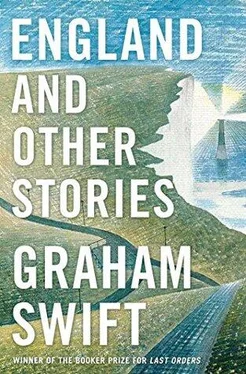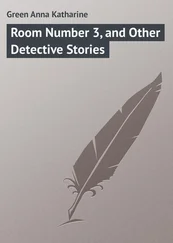‘If. .’ he says, ‘if. . a famous mountaineer dies while trying to climb a new way up the north face of the Eiger, the papers would call that tragic, but it wouldn’t be.’
That seems a long way from Macintyre’s warehouse, but I let it go. I can see Mick is getting all important with himself. I thought: Stay calm.
‘What would it be?’
‘It would be. . well, heroic maybe.’
‘Or mad,’ I say.
‘No, no, it would be the right sort of death for a mountaineer, wouldn’t it? It would be how a mountaineer might even want to die.’
I don’t say, ‘Who wants to die?’ And I don’t say, ‘Why are we talking about mountaineering?’
‘So?’ I say.
He shifts the half-rims on his nose a little, lifts them up with one finger, lets them drop again. Any moment now he’ll take them off and wipe them. He didn’t just get new glasses, he got a whole new act, a whole new bloody Mick Hammond, or the one that had only been waiting.
Maybe because of Mick and his glasses, I thought: Tragedy’s about acting too. It’s about stuff that happens on stage. Shakespeare and stuff. That’s the thing about it. It’s not real life. And Mercer can’t have been thinking that Ronnie Meadows dropping off his fork-lift was — well, like Hamlet .
Micky Hamlet, I thought. Mickey Mouse.
‘If, on the other hand. .’ he says. I thought: Here we go.
‘. . if a famous mountaineer dies not on the north face of the Eiger, but climbing up some easy-peasy little mountain in, I don’t know, the Lake District, then that’s tragic.’
I didn’t know what to say to this. Mick must have done some thinking, I’ll give him that, to come up with this. I sort of got what he was getting at, but then again I didn’t, I didn’t at all.
I thought: I never knew Mick had a secret hankering to be a mountaineer. And I thought: We’re nowhere near the Lake District, Micky, we’re in Stevenage.
So I said, ‘Why?’
Which is always the killer question. When I said it I couldn’t help thinking of when Gavin, our first, started up with his ‘Why? Why? Why?’. It often sounded more like ‘Wha! Wha! Wha!’ but, God, he knew it was the killer question.
Gavin’s nearly eighteen now.
‘Well, don’t you see?’ Mick says. ‘It’s got something about it. It’s not how a mountaineer would want to die, or should die. It’s—’
‘Just stupid,’ I say.
‘Tragic,’ he says.
Mick Hammond’s totally different from me. But, yes, he’s my mate, has been for years. Search me.
‘If you say so, Mick.’
And those glasses sometimes make Mick look like a granddad, twice my age, though there’s only a year in it.
I didn’t say, ‘If you say so, Prof.’ I thought: How did we get to this? The newspaper. Ronnie Meadows. The Lake District. But it was the newspaper first. I thought: I’m gasping.
And then I thought: If I get up and leave Mick here and go out across the yard to the gate to have a smoke and if I keel over while I’m doing it, would that be tragic? Smoking kills. It says so on the packet. Or would it be more tragic if Mick comes with me, is standing right beside me when it happens, and if he’s smoking too? Or if he isn’t, because he’s trying to give up and he’s just keeping me company?
Or would it be more tragic still if I go and have a smoke all by myself and feel all the better for it and meanwhile Mick here slumps forward and croaks. Slumps forward, with his tea unfinished, onto his newspaper with the word tragic dotted all over it.
‘If you say so,’ I say.
Mick thinks quitting smoking is wise. It goes with the glasses, maybe. But I know he only started trying to quit because of Ronnie. It wasn’t because he’s wise. It was because he was scared.
When Ronnie dropped off the fork-lift onto the yard floor he was still in a sitting-down position. It must have been a zonker of a heart attack.
I thought: Mick’s wrong. He’s talking cobblers. None of those deaths would be tragic.
I’m not a newspaper reader, I’m not any kind of reader, but when I was at primary school and it rained and we couldn’t go out to the playground, there’d be this big box of old Beanos and Dandys brought out for us to read. I used to love reading them — because it wasn’t reading at all. How they used to make me laugh. Biff! Bam! Kerrchow! I never thought then I’d end up being a warehouseman at Macintyre’s, dying for a smoke in my break.
Mick did his nose-shift thing again. He looked very pleased with having won his argument, if that’s what it was, or with me not understanding and just giving up. Or with him getting away — we’d run out of time now — with not having a smoke. If that’s what this was really all about. His little score on that.
Not exactly mountain climbing, Micky.
I thought: Okay, Mick, you’re my mate, if you’re really giving up, then that’s up to you, but next time I’m going out by myself, I’m leaving you here, matey. And don’t you ever start preaching to me, with your new glasses, about how I should give up myself. Don’t you ever start that.
Then I saw, in my head, Mick slumped forward over his spread newspaper, dead as a sack of cement.
And of course I understood. Of course I understood that tragic was a word people used when they didn’t know what else to say — about people dropping dead. But I thought: It’s not because they don’t know what to say. It’s not that at all. It’s because they can’t say the other thing, they can’t ever say it. The thing that goes with tragedy and happens on the stage too, and doesn’t have much to do with Macintyre’s warehouse either.
Biff! Bam! Kerrzang! How I laughed. How I’d love to get out a copy of the Beano in the canteen. Though I’d look a bloody idiot, wouldn’t I? The word you ought to use about that mountaineer in the Lake District, or about Ronnie dropping off the fork-lift still sitting down, or even about Mick here, slumped over his newspaper with his neat little new half-rims all scrunched up against his face, is comic.
Comic. That’s what you ought to say. But you can’t.
HE’D BEEN EARLY and Sue had still been upstairs, getting ready, as Alec ushered him in. Her voice had floated down, through a half-opened door, from above. ‘Hello, Bill.’ Then a hurried and apologetic, ‘I’m not decent.’
‘You’re always decent,’ he’d called back.
What did that mean? And the word stuck with him: decent.
Alec had phoned days before and said that Sue was having a night out with the girls, so he’d be all on his own. Why didn’t Bill come over?
‘I’ve got a bottle of Macallan. Fifteen-year-old. It fell off the back of a lorry.’
Alec didn’t say that he knew Bill would be on his own too — Sophie and the boys being away for half-term at Sophie’s parents while he soldiered on at the office. Bill reckoned that it was Sue who knew this, not Alec, so this was really Sue’s idea, Sue’s invitation. But Alec was Bill’s oldest friend.
‘Come over. I haven’t seen you for ages. Don’t bring anything, just yersel.’ Alec could get all Scots when he wanted.
So there he’d been, a little early, and Alec was giving him a cardiganed hug and there was the smell of the shepherd’s pie in the oven that Sue had cooked for them. He’d driven, which was easiest, but also stupid — given the bottle of Macallan. But he’d told himself that if he drove then he’d have to go carefully on the whisky, and if he had his car outside then he’d avoid any pressure as things got late to stay the night, which was all false upside-down logic. It wasn’t that he didn’t like being with Alec and Sue, quite the opposite.
Читать дальше












